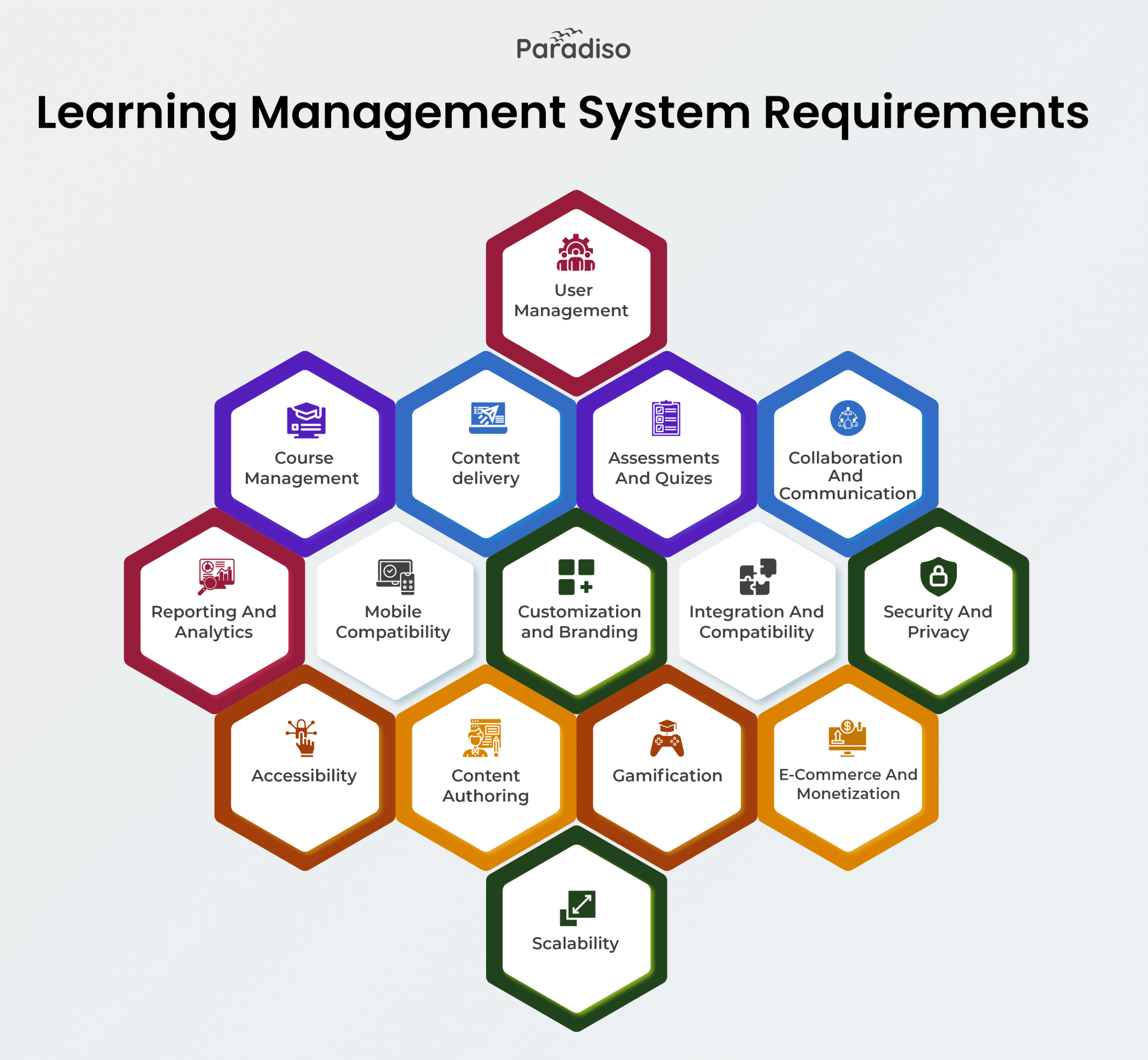In the rapidly evolving landscape of education and professional development, Learning Management Systems (LMS) have emerged as indispensable tools for institutions and organizations seeking to streamline and enhance their learning processes.
LMS serves as a comprehensive digital platform that facilitates educational content creation, management, and delivery. From academic institutions aiming to offer online courses to corporations striving to train their workforce efficiently, selecting and implementing an LMS are pivotal decisions. This introduction delves into the crucial realm of LMS requirements, exploring the key Considerations that guide the choice of an LMS, ensuring that it aligns with the users’ specific goals, needs, and expectations. A well-chosen LMS not only enhances instructional delivery but also provides actionable insights through data analytics, enabling continuous improvement in both teaching strategies and learner performance.
The landscape of LMS requirements encompasses a multifaceted spectrum that spans technical functionalities, pedagogical features, user experience, scalability, and integration capabilities. Instituting an LMS involves a meticulous assessment of factors such as customization options, content management tools, assessment and feedback mechanisms, user access controls, and compatibility with various devices. Moreover, organizations are increasingly prioritizing AI-driven personalization, gamification elements, and mobile-first design to meet the evolving expectations of digital learners. As institutions increasingly embrace hybrid and online learning models, the demand for LMS solutions that offer seamless virtual classrooms, collaborative spaces, and engaging multimedia content continues to surge. Security, compliance with industry standards, and robust support services also play a vital role in determining the long-term success of an LMS implementation.














